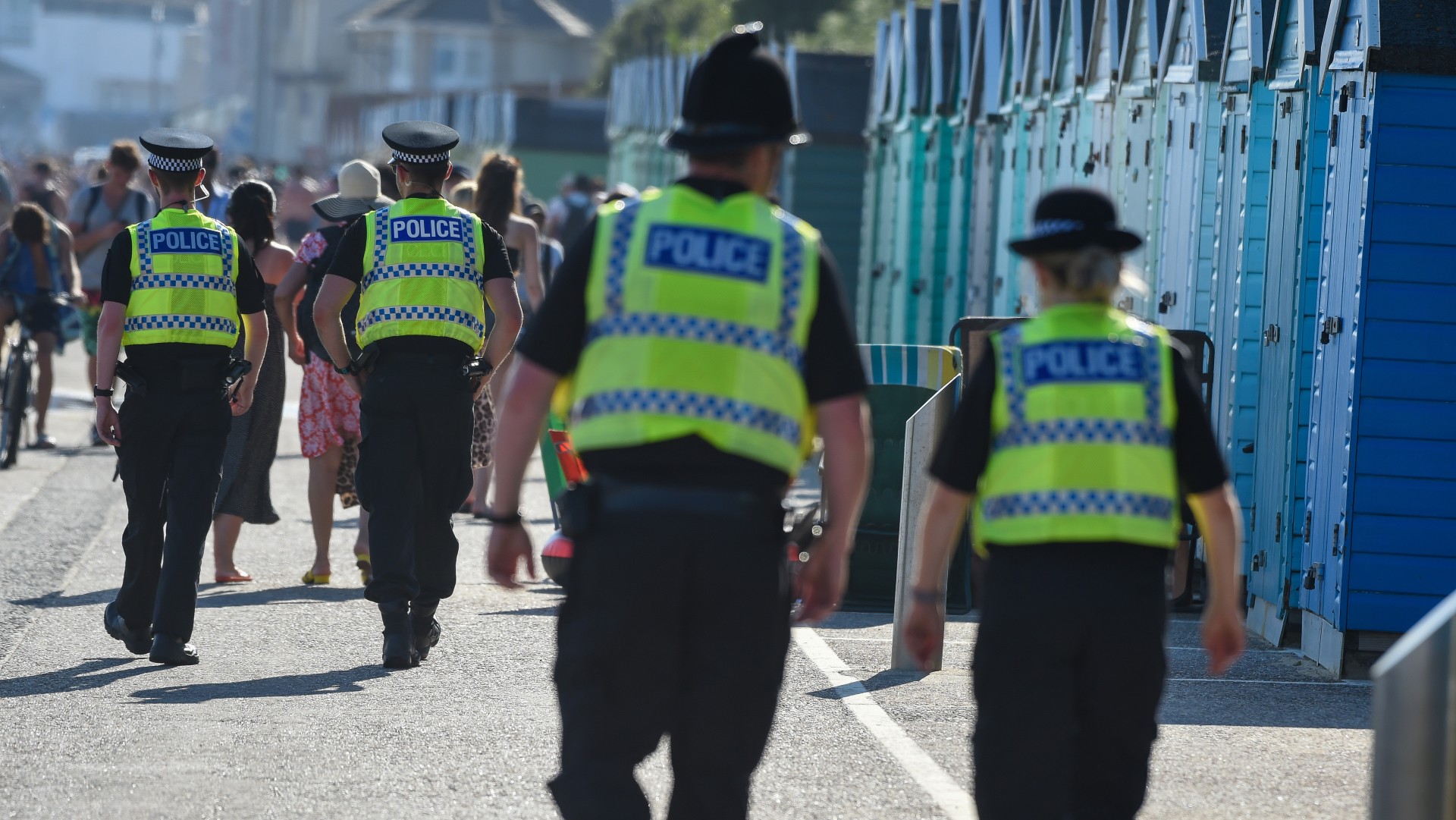Police patrols ‘cut violent crime by more than 70%’
Latest data suggests old-school ‘bobbies on the beat’ still play key role in modern policing

A free daily email with the biggest news stories of the day – and the best features from TheWeek.com
You are now subscribed
Your newsletter sign-up was successful
Just 15 minutes of police patrols can reduce levels of violent crime by more than 70%, according to a new study.
The Youth Endowment Fund analysis of an Essex Police pilot in Southend-on-Sea in summer 2020 found that violent crime fell by 74% on days when patrols took place.
Other patrol schemes have got similar results. Operation Rowan in Bedfordshire “involved patrols of 15 minutes each day in 30 hotspot areas where a third of the county’s serious violent crime was taking place”, said The Times’ crime editor Fiona Hamilton.The patrols were credited for a 38% reduction in violence and robbery.
The Week
Escape your echo chamber. Get the facts behind the news, plus analysis from multiple perspectives.

Sign up for The Week's Free Newsletters
From our morning news briefing to a weekly Good News Newsletter, get the best of The Week delivered directly to your inbox.
From our morning news briefing to a weekly Good News Newsletter, get the best of The Week delivered directly to your inbox.
West Midlands police reported a 14% drop in street crimes and antisocial behaviour following patrols in Birmingham.
While forces nationwide are spending more money on “the latest artificial intelligence to predict crime patterns”, the findings “underline the effectiveness of old-fashioned policing”, wrote Hamilton.
The analysis by the Youth Endowment Fund, which works to stop young people becoming involved in violence, suggested that patrols in crime hotspots resulted in significant drops in wider crime too, and fewer calls to emergency services.
“Hot spots policing” – which focuses policing resources and activities on locations where crime is most concentrated – “can also make a difference in the surrounding areas”, said UK law enforcement journal Police Professional.
A free daily email with the biggest news stories of the day – and the best features from TheWeek.com
The data “boosts” arguments by new Metropolitan Police commissioner Mark Rowley, who takes over in autumn, that the UK needs “more bobbies on the beat”, said The Times’ Hamilton. In his first public statement after landing the role in the scandal-hit force, the former head of UK counterterrorism policing pledged to “fight crime with communities – not unilaterally dispense tactics”.
-
 What are the best investments for beginners?
What are the best investments for beginners?The Explainer Stocks and ETFs and bonds, oh my
-
 What to know before filing your own taxes for the first time
What to know before filing your own taxes for the first timethe explainer Tackle this financial milestone with confidence
-
 The biggest box office flops of the 21st century
The biggest box office flops of the 21st centuryin depth Unnecessary remakes and turgid, expensive CGI-fests highlight this list of these most notorious box-office losers
-
 Why have homicide rates reportedly plummeted in the last year?
Why have homicide rates reportedly plummeted in the last year?Today’s Big Question There could be more to the story than politics
-
 How the ‘British FBI’ will work
How the ‘British FBI’ will workThe Explainer New National Police Service to focus on fighting terrorism, fraud and organised crime, freeing up local forces to tackle everyday offences
-
 ‘Stakeknife’: MI5’s man inside the IRA
‘Stakeknife’: MI5’s man inside the IRAThe Explainer Freddie Scappaticci, implicated in 14 murders and 15 abductions during the Troubles, ‘probably cost more lives than he saved’, investigation claims
-
 3 officers killed in Pennsylvania shooting
3 officers killed in Pennsylvania shootingSpeed Read Police did not share the identities of the officers or the slain suspect, nor the motive or the focus of the still-active investigation
-
 Christian Brückner: why prime suspect in Madeleine McCann case can refuse Met interview
Christian Brückner: why prime suspect in Madeleine McCann case can refuse Met interviewThe Explainer International letter of request rejected by 49-year-old convicted rapist as he prepares to walk free
-
 Dash: the UK's 'flawed' domestic violence tool
Dash: the UK's 'flawed' domestic violence toolThe Explainer Risk-assessment checklist relied on by police and social services deemed unfit for frontline use
-
 The ethics behind facial recognition vans and policing
The ethics behind facial recognition vans and policingThe Explainer The government is rolling out more live facial recognition technology across England
-
 What to do if your phone is stolen
What to do if your phone is stolenThe Explainer An average of 180 phones is stolen every day in London, the 'phone-snatching capital of Europe'